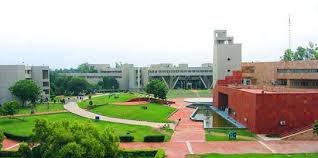
DTU Unveils Bold Vision for Digital Inclusion, Research, and Global Partnerships
In a major stride toward transforming higher education in India, Delhi Technological University (DTU) has unveiled a series of ambitious new initiatives aimed at expanding digital access, strengthening research infrastructure, and boosting global collaborations.
At a recent press conference, Vice-Chancellor Prof. Prateek Sharma outlined DTU’s roadmap to becoming a center of inclusive, multidisciplinary, and future-ready education. The announcements covered everything from launching a cutting-edge Research Park to rolling out computer literacy programs in underserved villages, reflecting DTU’s commitment to blending excellence with equity.
Taking Research to the Next Level
One of the most significant upcoming projects is the establishment of a Research Park at DTU’s Narela campus. Envisioned as a hub for innovation and entrepreneurship, the park will foster collaboration between academia, startups, and established industries. It’s designed to provide space and support for incubation, applied research, and technology transfer, bridging the often-cited gap between research labs and real-world application.
This move aligns with India’s larger ambition to promote Make in India, Digital India, and Startup India—and places DTU at the forefront of this national mission.
Boosting Digital Access and Online Learning
Highlighting the importance of inclusive education, Prof. Sharma announced the expansion of DTU’s online learning platform. The university will offer a range of certificate courses, from one-week skill programs to multi-month advanced modules, aimed at learners across different age groups and backgrounds.
“Why should only those who clear entrance exams get access to high-quality education?” asked Prof. Sharma. “Many students face challenges that aren’t in their control. Through digital education, our goal is to reach the masses and democratize learning.”
In a notable social outreach effort, DTU will also roll out a computer literacy initiative in five rural villages, aiming to empower communities through basic digital skills.
International Collaborations for a Global Classroom
To promote global exposure for its students, DTU has signed MoUs with South Asian University (SAU) for fostering regional academic cooperation and with the University of Houston (USA) for student exchange programs. These collaborations are part of DTU’s broader push to internationalize its academic environment and encourage cross-border research and learning.
New-Age Courses and Departments Aligned with NEP 2020
In line with the National Education Policy (NEP) 2020, DTU has introduced three new undergraduate BTech programs in highly relevant and emerging areas—Semiconductor Technology, Artificial Intelligence, and Data Analytics. These courses are designed to cater to industry demand and future career paths.
Additionally, a Department of Geospatial Science and Technology has been launched to offer multidisciplinary training in location-based technologies—an area rapidly gaining significance in urban planning, disaster response, agriculture, and more.
“NEP 2020 encourages us to tailor education to the learner’s context,” said Sharma. “We’re building curricula that are flexible, interdisciplinary, and industry-relevant.”
Industry Partnerships and Environmental Commitments
DTU has also collaborated with industry partners to set up a state-of-the-art R&D lab, fostering a culture of innovation among students and faculty. These collaborations are key to creating a robust research-to-market pipeline.
The university is also playing an active role in tackling environmental challenges. Its Department of Environmental Sciences is involved in projects such as flood control work with the NDMC at ITO and the Yamuna River rejuvenation initiative under the Delhi Government. Additionally, DTU has proposed solutions for pollution control to the Lieutenant Governor of Delhi.
In another significant development, DTU has signed an MoU with the Ministry of Road Transport and Highways, allowing it to establish a specialized center for safety evaluation in long road tunnels (1.5 km or longer).
Looking Ahead
DTU also provided updates on its interdisciplinary academic models, R&D incubation support for startups, and the admissions cycle for 2025–2026. As the university continues to evolve, its focus remains clear—equipping students not only for jobs but for lifelong problem-solving, leadership, and impact.
Also Read: XAT 2026 Applications Open July 10: Early Birds to Receive Exclusive Mentorship